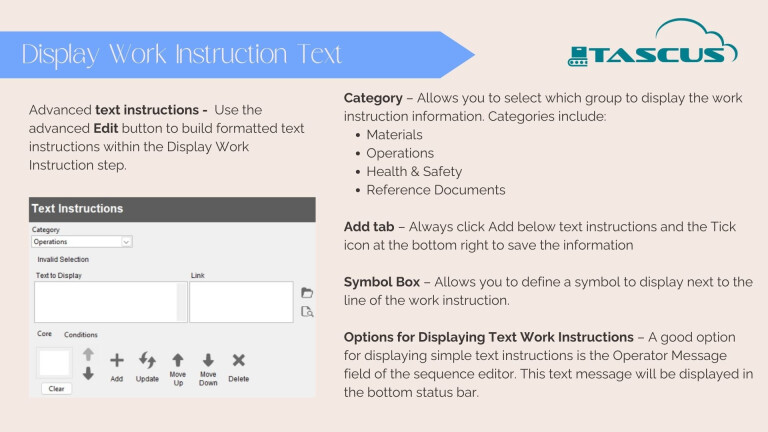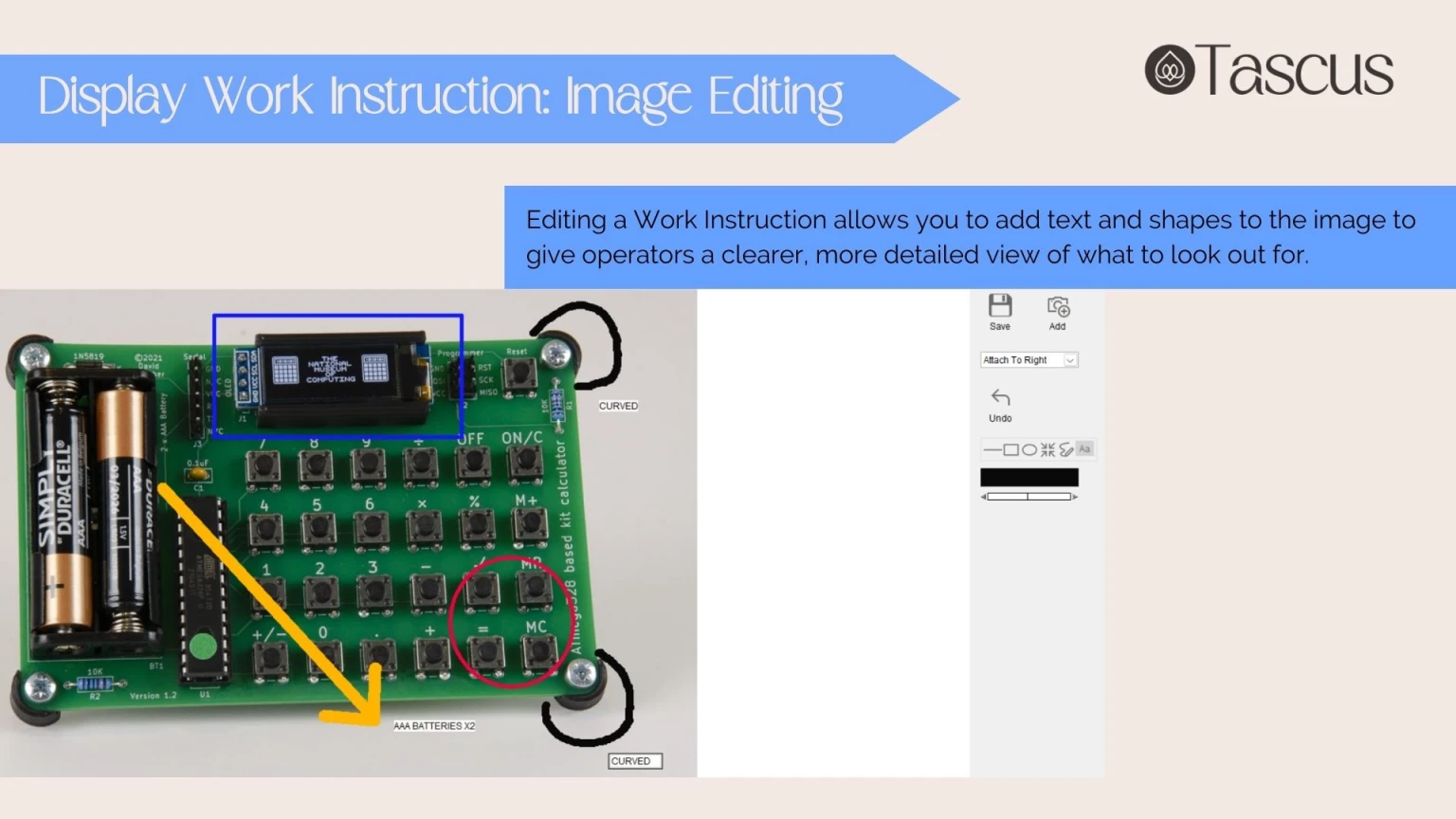Using the Display Work Instruction step will allow you to present media files to the operator during production.
Display Work Instruction Overview
The Display Work Instruction step presents the Operator text and files. Advanced options are also available which will allow you to include a range of media files and categorised operational instructions.

Easily locate the Advanced Edit options by clicking Edit icon on the Sequence Editor

Advanced Text Options

Add colour to the text to showcase importance or urgency to the operator

Advanced Media Options

You are able to edit images to highlight and make tasks easier to follow for the Operator during production.


Easily add text, shapes and colour to highlight areas during production.


FAQ
📸 Recommended Image Resolution Guidelines
To ensure your work instructions display clearly and load quickly in Tascus MES, follow these best practices when preparing images for work instructions.
✅ Optimal Image Resolution
Standard Displays (1920 x 1080 monitors)
➡️ Recommended size: 1360 x 680 pixels
This size provides a clean fit within the display area used in Tascus MES, ensuring sharp images without scaling or distortion.
High-Resolution Displays (Optional)
➡️ For larger screens or 4K displays, you can use images up to:
2720 x 1360 pixels
This ensures images remain crisp when scaled up.
✅ Aspect Ratio
Stick to a 16:9 aspect ratio to match the display area proportions in Tascus MES.
This prevents unwanted blank spaces (letterboxing or pillarboxing) around the image and maintains a consistent layout.
✅ File Size
Keep images under 300KB for fast loading and optimal performance.
➡️ Larger files (over 500KB) may load more slowly, especially over network connections.
✅ File Format
JPEG (.jpg)
Best for photos of parts, assemblies, and real-world objects.
PNG (.png)
Ideal for diagrams or images with text where sharpness and clarity are critical.
✅ Image Quality
Save JPEG images at 70-80% quality to keep file size small without noticeable loss in image quality.
Use PNG format for images with text or fine details.
✅ How Images Are Displayed in Tascus MES
Images are automatically scaled to fit the available screen space in Tascus MES.
The interface uses a responsive web browser component that displays the image at full screen width while maintaining its aspect ratio.
Larger screens will scale the image up to fill the space, so higher resolution images can improve display quality on larger monitors.
✅ Advanced (Optional) - Responsive Images for High-Resolution Screens
For the best experience on high-DPI monitors:
Prepare two versions of each image:
➡️ Standard: 1360 x 680 px
➡️ High-Res: 2720 x 1360 px
If you’d like assistance using responsive image options (such as srcset in HTML), contact Tascus Support.
📂 Example Export Settings
Tool | Export Settings |
|---|---|
Photoshop | Resize to 1360 x 680 px, JPEG quality 80% |
GIMP | Export as JPEG, quality 70-80%, resize first |
Online Tools | Use compression tools like TinyPNG or ImageOptim |

